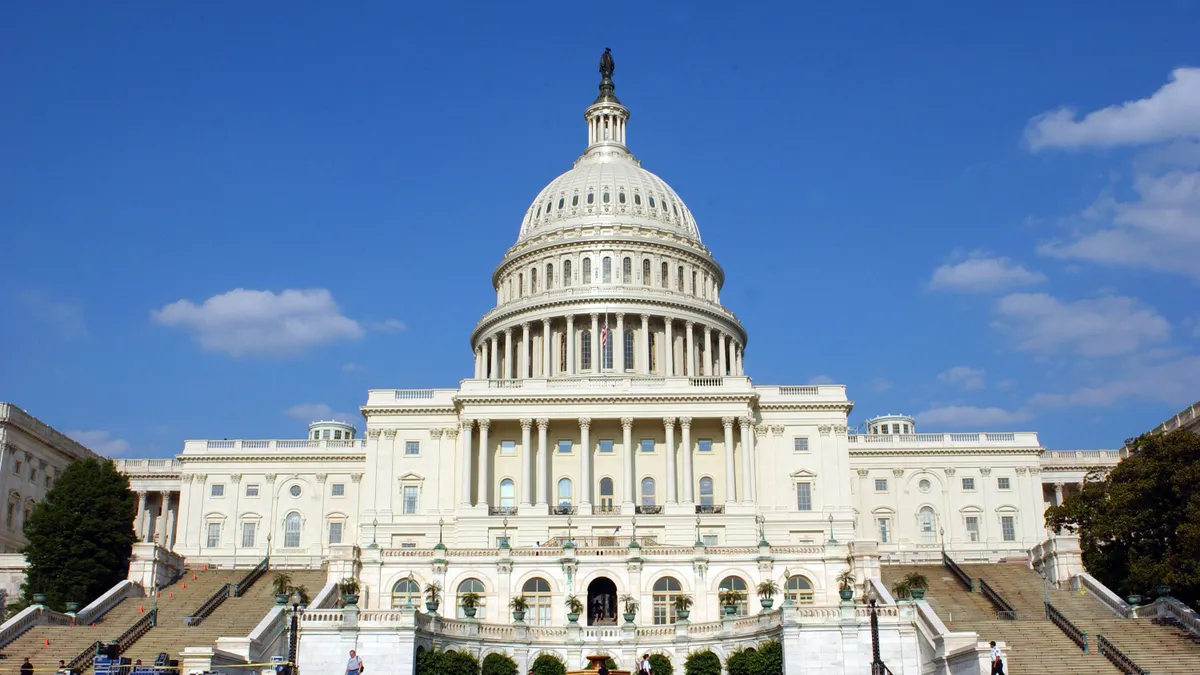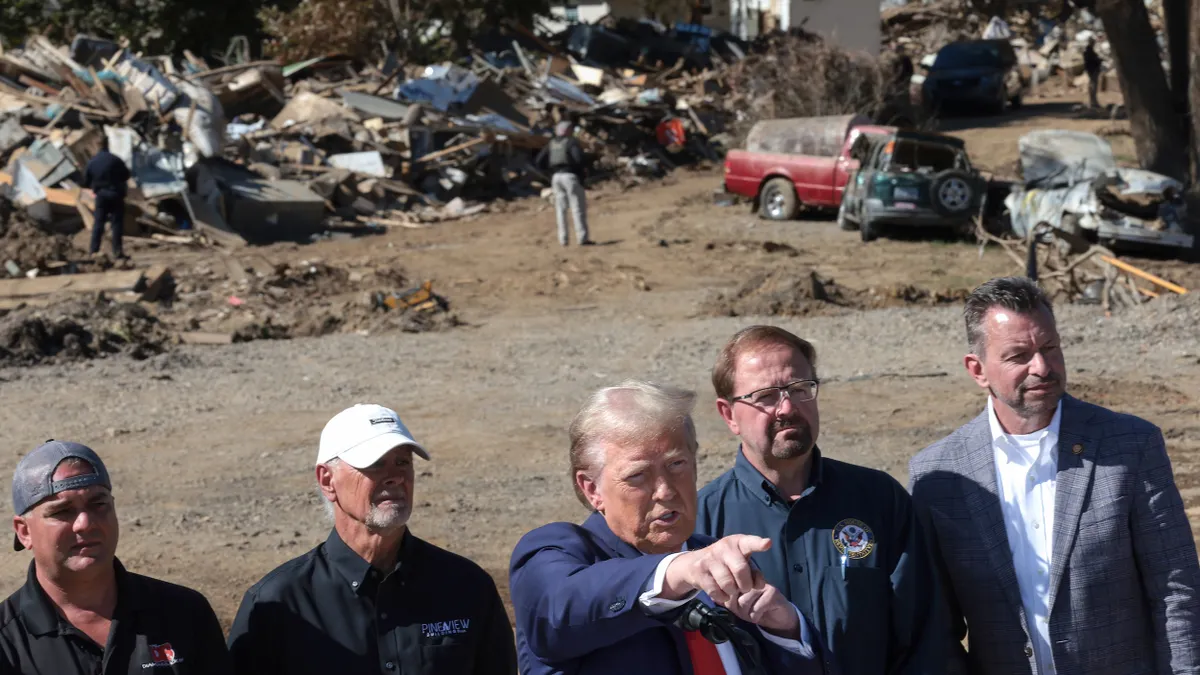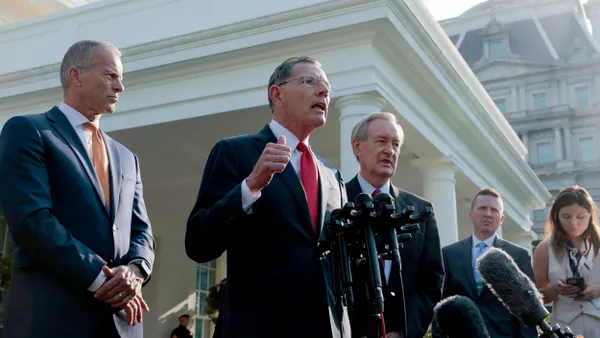Climate change is already disrupting supply chains and will only get worse, which will ultimately lead to higher costs to consumers, businesses and governments.
The looming crisis was the subject of a U.S. Senate committee hearing on Wednesday titled “Bottlenecks and Backlogs: How Climate Change Threatens Supply Chains” held by the budget committee.
Sen. Sheldon Whitehouse, a Democrat from Rhode Island and the committee’s chairman, pointed to how the COVID-19 pandemic “laid bare fragilities” in the global supply chain system.
“Just as the pandemic wreaked havoc throughout our supply chains, climate change is poised to do the same, only likely much more frequently,” Whitehouse said. “In fact, it has already begun.”
The lawmaker cited estimates from the climate disclosure nonprofit CDP that disruptions from global warming on supply chains would cost companies $120 billion by 2026.
Whitehouse also brought up droughts, heat waves and other climate-related events that have recently affected olive oil production in Spain and cocoa harvests. Such events could impact mining infrastructure for minerals like gold, iron ore and zinc, which could see production affected by water shortages. He also invoked droughts that have slowed shipping on the Panama Canal and Mississippi River this year.
Looking at the Mississippi as a case study, combined disruptions from climate change would lead to a projected $18.1 billion annual national loss to GDP, according to Adam Rose, a research professor at the University of Southern California and research member of the Defense Advanced Research Projects Agency’s Resilient Supply-and-Demand Networks program, who testified at the hearing.
Rose’s research team is also looking at climate disruption scenarios in the ports of New York and New Jersey, and Los Angeles and Long Beach, that could stem from climate stressors such as sea level rise and wildfires. Those impacts could run to the tens of billions of dollars, Rose said.
Manufacturing is also vulnerable to climate disruption. Another testifying witness, Scott Kelly, head of environmental analytics at climate risk specialist Risilience, pointed to semiconductors as an example.
“Taiwan is the world's largest producer of microchips, accounting for over 60% of the global supply of semiconductors at about 90% of the world's most advanced microchips,” Kelly said. “As a small island nation in the middle of the South China Sea, Taiwan is highly vulnerable to the impacts of climate change. The island is located on the typhoon belt, and is frequently hit by storms, which cause widespread flooding and damage to factories.”
Kelly noted the increase in monsoon strength in recent years, and the widespread use of semiconductors as a manufacturing input — a recipe for potential future supply shocks.
Some Republicans at the hearing voiced skepticism about whether climate change would pose an economic crisis. Sen. Chuck Grassley, a Republican from Iowa and the committee’s ranking member, accused Democrats of “sensationalist” and “alarmist” rhetoric around climate change to drive “top-down” policies.












